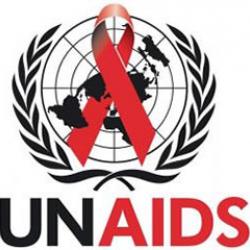UNAIDS to build antiretroviral manufacturing plant in Nigeria
The Joint United Nations Programme on HIV/AIDS, in conjunction with the Nigerian private sector, is planning to build an antiretroviral manufacturing plant in the Northeastern Nigeria.
According to a public statement, the UNAIDS plans to collaborate with local and international pharmaceutical companies, the National Medicines Regulatory Authorities and multilateral organisations toward achieving this goal.
The statement also said that the Executive Director, UNAIDS and Under-Secretary-General, United Nations, Mr. Michel Sidibé who is visiting Nigeria would share the 2016-2021 UNAIDS’ strategy with the Buhari government.
The visit would also enable him to get the government’s feedback on how to roll out the strategy to end AIDS by 2030 in Nigeria.
The statement said the UNAIDS boss would also discuss the global financial environment and its impact on funding for AIDS and the need for more sustained domestic funding for the Nigerian AIDS response.
It said there would be an opportunity to organise a fund-raising event to mobilise resources for UNAIDS from the Nigerian private sector under the leadership of former President Olusegun Obasanjo and in partnership with the Dangote Foundation and others.
According to the statement, Africa imported 98 per cent of its antiretroviral drugs and two manufacturers dominate 71 per cent of the African market. This represents a significant risk as African countries look to scale up supplies of antiretroviral medicines, but it also provides an incentive to build domestic pharmaceutical manufacturing capacity and deliver economic dividends for the region.
“Nigeria has the second largest HIV/AIDS epidemic in the world after South Africa. There is a 3.2 per cent HIV prevalence in the general population and 3.4 million of its people living with HIV, with almost all its antiretroviral medication coming from outside the country.
“To address these challenges, countries across Africa need to scale up local pharmaceutical production and meet internationally-acceptable standards of quality and safety. However, until local production satisfies demand, countries also need to improve their procurement of medicines and related commodities in order to achieve sustainable pricing and stable supplies,” it said.
Sidibé was quoted as saying that African leaders had embraced UNAIDS’ fast-track targets for ending AIDS as a public health threat by 2030.
He said this would mean “90 per cent of people living with HIV knowing their status, 90 per cent of people who know their status receiving treatment and 90 per cent of people on HIV treatment having a suppressed viral load so their immune system remains strong and they are no longer infectious.”
PUNCH.








